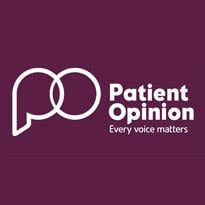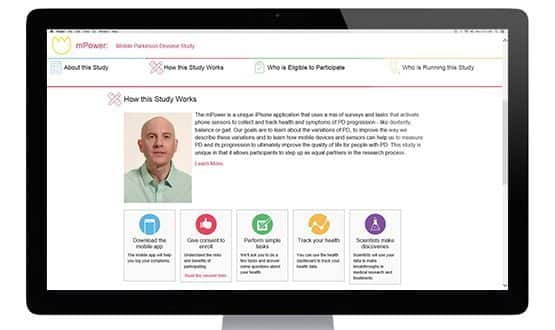EHI Live interview: Paul Hodgkin
- 23 August 2012

As founder and chief executive of Patient Opinion, Paul Hodgkin has had a front-row seat as successive governments have sought to make public data public and make public services more receptive to public views.
The patient feedback platform was founded in 2005, initially for the region around Sheffield, where Dr Hodgkin was a GP for 25 years, and then nationally.
More than150 health-related organisations are now registered with the social enterprise, accessing the feedback that is left by patients on a daily basis.
Meanwhile, Dr Hodgkin has gone from trying to persuade skeptical trusts and regulators of the value of his service to advising the Department of Health and the Cabinet Office on their increasingly influential choice and Open Data agendas.
“There is a sea change in government and there are good economic reasons for doing this,” he says. “We have got to put up with the short-term pain for the service, as it’s going to pay off. The realisation is growing that the cost of keeping things secret is actually costing more than making things open.”
The social bit of social media
Patient Opinion essentially works as a social media platform, but Dr Hodgkin is quick to point out that it is “not like Twitter or Facebook.”
It not only wants to collect patient comments and other feedback, but to highlight that experience to the right people; those who can actually get things done.
“Staff need to feel that they are not being dumped on,” Dr Hodgkin argues. “That is the other side of open data and social media. Yes, you can have positive comments but you can also have dirty photos of a hospital ward put up that attract abuse.
“Patient Opinion is about people having a public voice and using that to have a conversation with a hospital, a clinical commissioning group, or even a patient body as the Stroke Association to help deliver service improvements that can be transported across organisations.”
Clearly, there is some way to go. At the moment, the website is averaging evidence of service improvements on about 5% of the comments that are issued by patients (although not all comments are complaints – many are simple observations and about half could be classed as complements or notes of thanks).
Dr Hodgkin says that in the busier months this tends to increase to between 8% and 12%, and analysis suggests that the improvements tend to be low cost, yet significant in terms of delivery of care.
Running through a demonstration of his website, Dr Hodgkin, who retired from the frontline two years ago, highlights a story posted by the family member of a patient at Surrey and Sussex Healthcare NHS Trust.
The poster was complaining about the access to telephones on hospital wards. “As you can see, Ian Mackenzie [the trust’s director of information and facilities], has responded very quickly and ordered portable telephones,” Dr Hodgkin says.
“This response happened within three days and, while that doesn’t happen all the time, you can see the power.”
Further plans
The company has embarked on a similarly successful project in Australia and Dr Hodgkin says interest from overseas is high. Patient Opinion is now having a number of conservations with health bodies in countries such as Spain, Israel and Portugal.
Back in the UK, a ‘ratings’ element will be the next development to be implemented on the site, ranking organisations on the amount of responses that have resulted in a change/service improvement.
A partnership with broadcaster Channel 4 is also in the pipeline, as the team aims to continue providing a platform that can cope with social media and the ever increasing “public voice.”
“We have a come long way, but if you look at the site it is very text heavy and not very 2012. There is still a long way to go,” Dr Hodgkin admits.
Indeed, he says his organisation’s growing team has a long list of new features it would like to see implement; “some of which will actually appear.” Nevertheless, he reiterates that engaging with staff, and not bombarding them with what they might interpret as criticism, remains key to its success.
Moving into social care
As eHealth Insider reported in March, Patient Opinion is also set to make a leap into social care.
It will become the first official site to accept patients’ and carers’ stories on social care services, such as nursing homes, residential care homes for the mentally disabled and home care providers.
The social care site will site independently from Patient Opinion after securing funding from the Department of Health’s Voluntary Sector Investment Programme 2012-13, which has allocated £6.8m to 50 organisations. The site is due to be launched in early 2013.
“The site will be built differently but the two will be integrated. Patients often provide a complete story of their journey of care, and they often cannot separate the providers or see the difference between health and social care.
“We will break this up and make sure each part is handled by the correct organisation,” Dr Hodgkin explains.
The organisation piloted the idea of running feedback on nursing homes in 2008, but required funding to develop the functionality. The input of £160,000 over the next two years from the DH will allow it to increase its presence in the growing public voice/open data markets.
Patient Opinion is also exploring how it could contribute to the government’s My Health portal.
Talking about the NHS information strategy, ‘The Power of Information’, health secretary Andrew Lansley has suggested this will combine elements of many different NHS advice, choice and ratings sites, and carry social care information as well.
It has even been suggested that patients will be able to access their GP records, book appointments and order prescriptions, through the site, which will sit within the NHS Commissioning Board, where Tim Kelsey has recently become head of patient engagement and information.
Open data
Dr Hodgkin has spoken highly of the co-founder of Dr Foster and former government ‘transparency tsar’, and says he is looking forward to the impact he will have in his new role at the NHS CB. One thing is certain, data can only become more open, rather than less, in the new regime.

Dr Paul Hodgkin will be giving a speech called ‘alive and clicking: social media, patients and the NHS’ at EHI Live 2012 at the NEC in Birmingham from 6-7 November. He will advise health organisations that the public voice is growing ever louder and they need to be involved in the ‘conversation’.
EHI Live 2012 is a two day conference and exhibition that will take place at the NEC in Birmingham on 6-7 November 2012.
The conference will feature an exciting rosta of speakers, including Mike Farrar, chief executive of the NHS Confederation, and confidentiality expert Dame Fiona Caldicott.
The free exhibition will include more than 100 stands, showcasing the latest in healthcare IT, alongside popular feature areas, such as the best practice showcase of great work going on around the country.
More information about the show, how to register, and how to book a stand can all be found on the EHI Live 2012 website.




